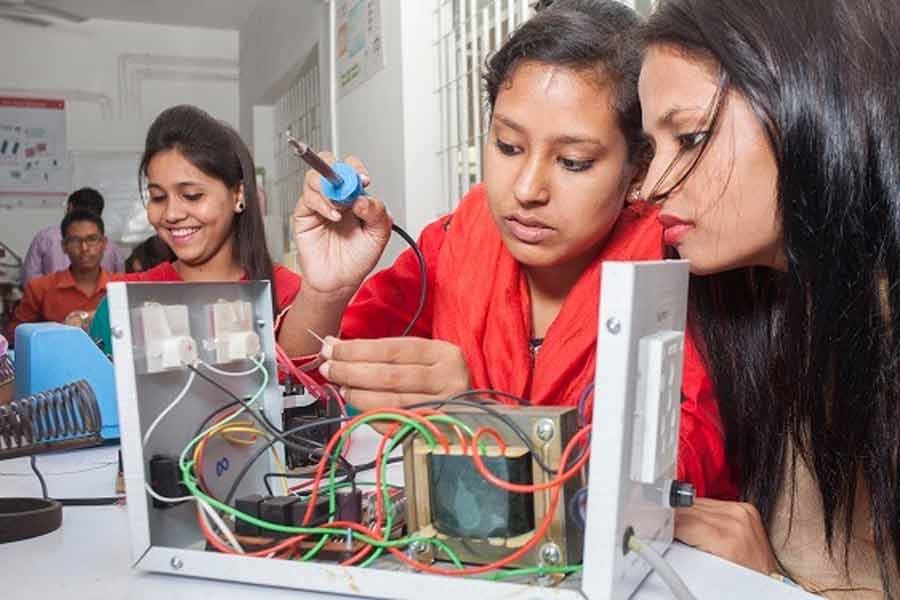
Published :
Updated :

Developing a strong technical manpower base is a precondition for taking forward Bangladesh's pursuit of industrialisation. Though no one would deny this requirement, yet achievement in this direction so far has been nothing to write home about. Yes, vocational and technical schools have been there alongside those providing general education in the country since pre-independence time but those were few and far between. According to an estimate, annually the manufacturing and service sectors have a demand for around a million technical personnel. But evidently the existing technical schools are not able to meet the demand. At any rate, recent crops of technical diploma holders fell short of technological and supervisory orientations that the manufacturing and services sectors stand in need of. In this context, a radical revamping of our entire education system with special emphasis on technical education is necessitated, if only to keep pace with the growing manufacturing and services sectors.
At a recently held virtual discussion event in the city, government and industry leaders were at one with one another when it came to reforming the technical education curricula as they stands now. At this point, light is being shed on the emerging needs of the post-LDC phase as well as the impact on the economy of the upcoming paradigm shift in the global industry by way of the so-called Fourth Industrial Revolution (4IR). In truth, world industry and economy are already going through this transformative shift. So as not to fall by the wayside, all concerned in the academia, the private sector and the government will be required to devise a strategy to face up to this challenge of the millennia. Obviously, as everywhere, an army of technically equipped manpower should be in the driving seat of the industry and the economy at such critical times. Given the urgency of the situation, the issue of restructuring the technical education system of the country cannot be left to the government alone. The private sector should also come forward with the latest ideas on teaching methodologies, course content design and curricula development as well as resources to establish institutions of technical learning. But before beginning the task, they will need to know the exact status of the technical education sector. To this end, they will need a database, which is lacking, on the number and types of technical institutions in existence. They will also need to address the deficiencies in the assessment procedures of technical education.
It would be worthwhile to note that introducing updated course materials in the classes of the technical and vocational schools will not be enough. The next most important step will be to have sufficient number of master trainers, now in short supply, to train students in line with the new curricula. Massive training programmes should be in place to train the teachers of the existing technical schools in the new teaching methodologies as well as the courses to be taught. At the same time, where necessary, trainers from abroad should be brought to train the local trainers of technical schools as well as provide training directly to students. To this end, a concerted effort through public-private partnership, it is believed, would infuse necessary dynamism in the work as well as expedite the process of transforming the technical education system towards its desired goal.


 For all latest news, follow The Financial Express Google News channel.
For all latest news, follow The Financial Express Google News channel.